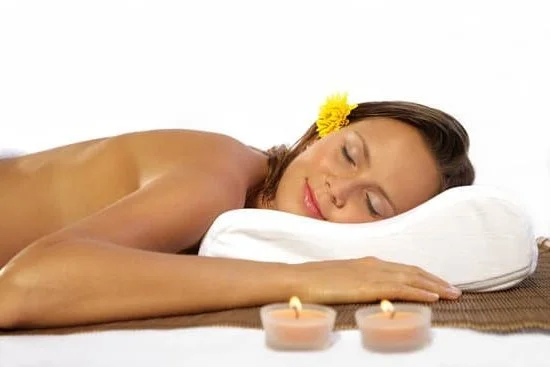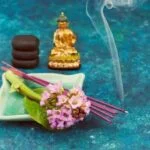Aromatherapy has gained significant popularity in recent years as a natural and holistic approach to promote physical and emotional well-being. Many people turn to this practice to enhance relaxation, reduce stress, boost mood, and address various ailments. Central to aromatherapy are essential oils, highly concentrated plant extracts that are known for their therapeutic properties. In this article, we will explore the power of essential oils in aromatherapy and help you discover which ones are best suited for your needs.
Essential oils have been used for centuries for their healing benefits. Derived from various parts of plants such as flowers, leaves, bark, and roots, these oils capture the essence and aroma of the plant. Each essential oil contains a unique combination of chemical compounds that contribute to its specific properties and effects on the body and mind.
Aromatherapy harnesses the potent properties of essential oils by using them in different ways, such as through inhalation or topical application. When inhaled or absorbed through the skin, the molecules of these oils interact with the body’s chemistry to produce therapeutic effects. Whether it is calming the nervous system, alleviating pain, boosting immunity, or improving sleep quality – essential oils can play a vital role in promoting overall well-being.
In the following sections of this article, we will delve deeper into what aromatherapy is all about and how it works. We will explore the numerous benefits that come from incorporating essential oils into your daily routine. Additionally, we will discuss factors to consider when choosing essential oils for aromatherapy purposes and outline some of the top oils for relaxation and stress relief, energy enhancement, sleep promotion, muscle pain relief, and more.
If you are curious about how to incorporate essential oils into your daily life or simply seeking natural remedies to support your well-being journey – look no further. Join us as we embark on a journey of discovery into the world of aromatherapy and find out which essential oils are best suited for your aromatherapy needs.
What Is Aromatherapy and How Does It Work?
Aromatherapy is a holistic healing practice that utilizes the power of essential oils for therapeutic benefits. It involves the use of aromatic plant extracts to promote physical and emotional well-being. These essential oils are derived from various parts of plants such as flowers, leaves, bark, and roots, and they possess unique properties that can have a profound impact on our health.
In aromatherapy, essential oils are typically inhaled or applied topically. When we inhale the aroma of these oils, the molecules interact with the olfactory system in our brain, which controls our sense of smell. This interaction triggers certain responses in the brain that can affect our emotions, mood, and overall mental state.
Additionally, essential oils can also be absorbed into the body through the skin when applied topically. The molecules of these oils are small enough to penetrate into the bloodstream and reach different organs and tissues. Once absorbed, they can have pharmacological effects on various physiological processes in the body.
The therapeutic effects of aromatherapy primarily come from the chemical constituents present in essential oils. These constituents include terpenes, esters, alcohols, ketones, and phenols, among others. Each essential oil has its own unique blend of constituents that contribute to its specific properties and benefits.
Overall, aromatherapy works by harnessing the natural healing powers of plants through their aromatic compounds. By incorporating essential oils into our routine through inhalation or topical application, we can tap into their potential to enhance our well-being both physically and emotionally.
The Benefits of Using Essential Oils in Aromatherapy
Aromatherapy, which utilizes essential oils to promote physical and psychological well-being, has been practiced for centuries. The use of essential oils in aromatherapy offers numerous benefits that can improve overall health and enhance one’s quality of life.
One of the main benefits of using essential oils in aromatherapy is their ability to support relaxation and reduce stress. Certain essential oils, such as lavender, chamomile, and ylang-ylang, have calming properties that can help soothe the mind and body. These oils can be diffused or used in massage treatments to induce a state of relaxation and alleviate feelings of anxiety or tension.
In addition to promoting relaxation, essential oils used in aromatherapy can also help boost energy levels and uplift mood. Citrus oils like lemon and orange are known for their invigorating qualities that can increase alertness and vitality. Peppermint oil is another energizing essential oil that can provide a natural pick-me-up when feeling fatigued or sluggish.
Furthermore, incorporating certain essential oils into your aromatherapy routine can aid in promoting sleep and improving sleep quality. Lavender oil is particularly renowned for its ability to relax the mind and body, making it an excellent choice for individuals struggling with insomnia or sleep disturbances. Bergamot oil may also have a similar effect on sleep by reducing anxiety and encouraging a sense of calm before bedtime.
Overall, the benefits of using essential oils in aromatherapy are vast. From promoting relaxation to boosting energy levels, improving sleep quality to relieving muscle aches and pains, there is an array of essential oils available with unique properties that cater to different needs. By harnessing the power of these natural plant extracts, individuals can enhance their well-being and achieve a greater sense of balance in both mind and body.
Choosing the Right Essential Oils for Aromatherapy
When it comes to aromatherapy, choosing the right essential oils is crucial for achieving optimal results. With so many options available, it can be overwhelming to decide which ones to use. However, there are several factors that you should consider when selecting essential oils for your aromatherapy practice.
Firstly, it is important to consider the purpose of your aromatherapy treatment. Different essential oils have different therapeutic properties, so you need to choose oils that align with your specific goals. For example, if you are looking for relaxation and stress relief, lavender and chamomile essential oils are excellent choices. On the other hand, if you want to boost energy and mood, citrus oils like lemon and orange are more suitable.
Another factor to consider is the quality of the essential oil. It is crucial to choose high-quality oils that are pure and free from synthetic additives or contaminants. Look for reputable brands that provide information about their sourcing and production methods. Organic and therapeutic grade essential oils are often a good option as they undergo rigorous testing and meet strict standards.
Lastly, personal preference plays a significant role in choosing the right essential oils for aromatherapy. Everyone has different likes and dislikes when it comes to scents, so it is important to select oils that you find pleasant and enjoyable. Experiment with different aromas until you find ones that resonate with you.
| Factors to Consider | Description |
|---|---|
| Purpose of Treatment | Different oils have different therapeutic properties, so consider your goals when selecting oils. |
| Quality of the Oil | Choose high-quality oils that are pure and free from additives or contaminants. |
| Personal Preference | Select oils that you find pleasant and enjoyable based on your own scent preferences. |
Top Essential Oils for Relaxation and Stress Relief in Aromatherapy
Aromatherapy is a holistic healing practice that utilizes essential oils to promote physical, mental, and emotional well-being. One of the primary benefits of aromatherapy is its ability to induce relaxation and relieve stress. In this section, we will explore the top essential oils that are known for their calming properties.
1. Lavender: Lavender essential oil is perhaps one of the most popular oils used for relaxation and stress relief. It has a calming scent that helps to reduce anxiety and promote better sleep quality. Lavender oil can be applied topically or diffused in a room to create a soothing environment.
2. Chamomile: Chamomile essential oil has been used for centuries as a natural remedy for promoting calmness and relieving stress. It has sedative properties that help in reducing anxiety and promoting relaxation. Chamomile oil can also be used topically or added to bathwater for a relaxing soak.
3. Bergamot: Bergamot essential oil is derived from citrus fruits and has a unique floral-citrus scent that is both uplifting and relaxing. It can help to alleviate feelings of depression, anxiety, and stress. Bergamot oil can be diffused or applied topically with a carrier oil.
These are just a few examples of the many essential oils available for relaxation and stress relief in aromatherapy. Each person may have different preferences when it comes to scents, so it’s important to find the ones that work best for you. Experimenting with different oils can help you discover your favorites and create personalized blends tailored to your specific needs.
Incorporating these essential oils into your daily routine can provide you with regular moments of relaxation and tranquility, allowing you to better manage stress and improve your overall well-being.
| Essential Oil | Main Benefits |
|---|---|
| Lavender | Reduces anxiety and promotes better sleep quality |
| Chamomile | Promotes calmness and relieves stress |
| Bergamot | Alleviates feelings of depression, anxiety, and stress |
Essential Oils for Boosting Energy and Mood in Aromatherapy
Aromatherapy is a therapeutic practice that utilizes essential oils to improve overall well-being. One of the key benefits of aromatherapy is its ability to boost energy and mood, making it a popular choice for those looking to uplift their spirits and increase motivation. In this section, we will explore some of the best essential oils for boosting energy and mood in aromatherapy.
Energizing Essential Oils
Certain essential oils are known for their energizing properties, which can help combat feelings of fatigue and increase alertness. Peppermint oil is one such oil that has a stimulating effect on the mind and body. Its invigorating scent can help clear the mind and improve focus, making it ideal for use during work or study sessions.
Another energizing essential oil is citrus oil, such as lemon or orange. These oils have a refreshing aroma that can instantly uplift the mood and promote feelings of positivity. The vibrant scent of citrus oils can help combat stress and mental exhaustion, giving you a natural energy boost.
Mood-Enhancing Essential Oils
In addition to increasing energy levels, aromatherapy can also be used to enhance mood. Some essential oils have natural mood-enhancing properties, which can help reduce anxiety, depression, and feelings of sadness. Lavender oil is a popular choice for promoting relaxation and improving mood due to its calming effects. It can help soothe the mind and promote a sense of peace and tranquility.
Another powerful mood-enhancing essential oil is bergamot. This citrusy oil has been found to stimulate the release of serotonin and dopamine in the brain, which are neurotransmitters responsible for regulating mood. The uplifting scent of bergamot can help alleviate feelings of sadness or lethargy, promoting a more positive outlook.
Incorporating these energizing and mood-enhancing essential oils into your aromatherapy routine can provide you with a natural and effective way to boost energy levels, improve mood, and support overall well-being. Experiment with different oils to find the ones that work best for you, and enjoy the rejuvenating benefits they bring.
Essential Oils for Promoting Sleep and Improving Sleep Quality in Aromatherapy
Having a good night’s sleep is essential for our overall well-being, both physically and mentally. Aromatherapy offers a natural and effective way to promote sleep and improve the quality of our rest. By using specific essential oils known for their calming and soothing properties, we can create a relaxing environment that encourages better sleep.
One of the most popular essential oils for promoting sleep is lavender. Lavender oil has been used for centuries due to its calming effects on the mind and body. Research has shown that inhaling lavender oil can reduce anxiety levels, lower blood pressure, and promote deeper sleep. Adding a few drops of lavender oil to your pillow or diffusing it in your bedroom before bedtime can help create a peaceful atmosphere that promotes relaxation and sleep.
Another essential oil known for its sedating properties is chamomile. Chamomile oil has been used for centuries as a natural remedy for insomnia. It contains compounds that have a similar effect to mild tranquilizers, promoting relaxation and reducing feelings of restlessness. Diffusing chamomile oil in your bedroom or adding it to a warm bath before bedtime can help calm the mind, relax the body, and prepare you for a restful night’s sleep.
| Essential Oil | Benefits |
|---|---|
| Lavender | Reduces anxiety levels, lowers blood pressure, promotes deeper sleep |
| Chamomile | Promotes relaxation, reduces restlessness, aids in insomnia relief |
In addition to lavender and chamomile, other essential oils that are known to promote sleep and improve sleep quality include bergamot, clary sage, and vetiver. Bergamot oil has a calming aroma that can help relieve anxiety and stress, making it easier to fall asleep.
Clary sage oil is known for its ability to relax the mind and body, helping to induce a state of tranquility conducive to sleep. Vetiver oil has grounding properties that can help calm racing thoughts and promote deep sleep.
When using essential oils for promoting sleep in aromatherapy, it’s important to remember that everyone’s response may vary. Some oils may work better for certain individuals than others. It’s also crucial to dilute essential oils properly and follow dosage guidelines to ensure their safe use. Using a diffuser or adding a few drops of diluted oil to a warm bath or onto a washcloth are effective methods for experiencing the relaxation benefits of these oils.
Overall, incorporating essential oils such as lavender, chamomile, bergamot, clary sage, and vetiver into your nighttime routine can help create an environment conducive to sleep and contribute to improved sleep quality. By harnessing the power of these natural remedies, you can enhance your well-being by enjoying more restful nights and waking up feeling refreshed and rejuvenated.
Essential Oils for Soothing Muscle Aches and Pains in Aromatherapy
Muscle aches and pains are a common complaint for many people, whether it’s due to exercise, injury, or stress. Aromatherapy can be a natural and effective way to alleviate these discomforts and promote muscle relaxation. There are several essential oils that are known for their soothing properties and can be used in aromatherapy to help ease muscle aches and pains.
One essential oil that is particularly beneficial for soothing muscle discomfort is peppermint oil. Peppermint oil contains menthol, which has analgesic and anti-inflammatory properties. When applied topically or inhaled through aromatherapy, peppermint oil can provide temporary relief from muscle pain and reduce inflammation. It also has a cooling sensation that can help soothe sore muscles.
Another essential oil that is known for its muscle-soothing abilities is lavender oil. Lavender oil possesses anti-inflammatory properties and is often used in aromatherapy to promote relaxation and relieve stress. It can also help ease muscle tension and bring relief to strained or tight muscles.
Eucalyptus oil is another excellent option for soothing muscle aches and pains. Its anti-inflammatory properties make it effective in reducing swelling and inflammation associated with sore muscles. Eucalyptus oil also has analgesic properties that can help numb the area of discomfort, providing temporary relief from muscle pain.
When using essential oils for soothing muscle aches and pains, it’s important to dilute them properly before applying them topically to avoid skin irritation. Carrier oils such as coconut oil or almond oil can be used to dilute the essential oils. A recommended dilution ratio is typically 2-3 drops of essential oil per teaspoon of carrier oil.
Overall, incorporating essential oils into your aromatherapy routine can be an effective way to soothe muscle aches and pains. Experiment with different oils such as peppermint, lavender, or eucalyptus to find the ones that work best for you. Remember to always dilute the essential oils properly and consult with a healthcare professional if you have any underlying medical conditions or concerns. Soothe your muscles and find relief with the power of aromatherapy and essential oils.
Using Essential Oils Safely in Aromatherapy
When it comes to using essential oils in aromatherapy, it is important to prioritize safety. While essential oils can provide numerous benefits for your well-being, they are highly concentrated and potent substances that should be used with caution. By following proper precautions and dosage guidelines, you can ensure a safe and effective aromatherapy experience.
Understanding the Precautions
Before using any essential oil in aromatherapy, it is crucial to be aware of any potential risks or contraindications associated with specific oils. Certain essential oils may cause skin irritation or allergic reactions, especially for those who have sensitive skin. It is recommended to perform a patch test on a small area of your skin before applying an essential oil topically.
Moreover, some essential oils should not be used during pregnancy or by individuals with certain medical conditions such as asthma or epilepsy. Pregnant women should especially consult with their healthcare provider before incorporating essential oils into their routine.
Dosage Guidelines for Essential Oils
The correct dosage of essential oils is vital to ensure both safety and effectiveness in aromatherapy. As a general rule of thumb, most adult individuals should start with a low dilution rate of around 1% – 2% when using essential oils topically. This means adding approximately 6 – 12 drops of essential oil per ounce (30ml) of carrier oil.
For inhalation methods such as diffusing or steam inhalation, it is recommended to use fewer drops due to the direct exposure to the respiratory system. Begin with 3 – 5 drops of essential oil in your diffuser or inhale from a bowl of hot water.
It is important to note that children and pets have different sensitivities to essential oils and may require even lower dilution rates. Additionally, always consult with a certified aromatherapist or healthcare professional for personalized dosage guidelines based on your specific needs and circumstances.
By taking the necessary precautions and following appropriate dosage guidelines, you can enjoy the benefits of essential oils in aromatherapy while keeping yourself safe. Remember to do your research, educate yourself about the specific oils you are using, and listen to your body’s response to ensure a positive experience with aromatherapy.
How to Incorporate Essential Oils Into Your Aromatherapy Routine
Aromatherapy is a practice that involves using essential oils to enhance physical and mental well-being. It can be incorporated into your daily routine in various ways, allowing you to experience the full benefits of these powerful oils. Here are some tips and techniques for incorporating essential oils into your aromatherapy routine:
1. Inhalation: One of the most common methods of using essential oils in aromatherapy is through inhalation. You can add a few drops of your chosen oil to a diffuser or vaporizer and allow it to disperse throughout the room. Alternatively, you can mix a few drops with water in a spray bottle and spritz it around your space. Inhaling the aroma of the oils can help to promote relaxation, boost mood, and purify the air.
2. Massage: Another effective way to incorporate essential oils into your aromatherapy routine is through massage. Mix a few drops of your chosen oil with a carrier oil, such as sweet almond or jojoba oil, and gently massage it onto your skin. The combination of the aromatherapeutic properties of the oil and the soothing massage can provide deep relaxation, relieve muscle tension, and improve circulation.
3. Bathing: Taking a warm bath infused with essential oils can be a luxurious and therapeutic experience. Add a few drops of your favorite oil to a bathtub filled with warm water and soak for at least 20 minutes. The steam from the water will release the aroma of the oils, while their properties work on both physical and mental levels. This method is particularly effective for promoting relaxation, relieving stress, and enhancing sleep quality.
Remember to always use essential oils safely by following proper precautions and dosage guidelines. Some oils may cause skin irritation or have adverse effects when used incorrectly or in excessive amounts. As each person’s reaction to different oils can vary, it is recommended to conduct patch tests before using any new oil topically or internally.
Additionally, it is important to consult with a qualified aromatherapist or healthcare professional for personalized guidance and support. By incorporating essential oils into your aromatherapy routine in a safe and mindful manner, you can enhance your well-being and enjoy the numerous benefits these oils have to offer.
Conclusion
In conclusion, incorporating essential oils into your aromatherapy routine can be a powerful tool for enhancing your overall well-being. Aromatherapy harnesses the power of plant extracts to promote relaxation, relieve stress, boost energy, improve sleep quality, and soothe muscle aches and pains. By understanding the benefits of different essential oils and considering the factors that influence their effectiveness, you can choose the best oils for your specific needs.
When it comes to relaxation and stress relief, lavender and chamomile essential oils are popular choices. These oils have calming properties that can help reduce anxiety and promote a sense of tranquility. For boosting energy and improving mood, citrus oils like lemon, orange, or grapefruit are often recommended. These bright and uplifting scents can provide an instant pick-me-up.
If you struggle with sleep issues or want to enhance the quality of your sleep, essential oils such as lavender, roman chamomile, or cedarwood may be beneficial. These oils have sedative properties that can induce feelings of relaxation and promote a restful night’s sleep. And when it comes to soothing muscle aches and pains, essential oils like peppermint or eucalyptus can provide relief due to their cooling and analgesic properties.
It is important to use essential oils safely in aromatherapy by following precautions and dosage guidelines. Some essential oils may cause skin irritation or allergic reactions in certain individuals, so it is always recommended to perform a patch test before using them topically. Additionally, using too much of any essential oil can be overwhelming and counterproductive. It is best to start with small amounts and gradually increase if needed.
By incorporating these tips into your aromatherapy routine, you can experience the many benefits that essential oils have to offer. Whether you’re looking for relaxation, energy boosters, better sleep quality or relief from muscle pain – there is an essential oil out there for you. Take the time to explore and experiment with different oils, and you’ll soon discover the ones that work best for enhancing your well-being.
Frequently Asked Questions
What Essential Oils Are Good for Aromatherapy?
Essential oils are a popular choice for aromatherapy due to their various therapeutic benefits. Some of the most commonly used essential oils for this purpose include lavender, which is known for its calming and soothing properties, as well as its ability to promote relaxation and sleep. Another popular option is peppermint oil, which has an invigorating and refreshing scent that can help improve focus and relieve headaches or migraines.
Additionally, eucalyptus oil is often used for its respiratory benefits, helping to clear the sinuses and support breathing. Other essential oils commonly used in aromatherapy include tea tree oil for its antibacterial properties, bergamot oil for its uplifting and mood-enhancing effects, and chamomile oil for its soothing properties.
Which Essential Oils Are Best to Diffuse?
When it comes to diffusing essential oils, the choice depends on personal preference and the desired effect. One highly recommended essential oil for diffusion is lemon oil. Its bright and citrusy aroma can create an uplifting environment and boost energy levels.
Another popular option is lavender oil which can create a calming atmosphere that promotes relaxation and improves sleep quality. Peppermint oil is also frequently used in diffusers due to its invigorating and refreshing scent that helps improve focus and concentration. Other essential oils often chosen for diffusion include eucalyptus oil for its respiratory benefits, ylang-ylang oil for its floral fragrance that enhances mood, or tea tree oil with its antibacterial properties.
What Is the Most Relaxing Essential Oil Scent?
The most relaxing essential oil scent varies from person to person since individuals have different preferences when it comes to aromas. However, one widely recognized relaxing scent in aromatherapy is lavender essential oil. Known for its soothing properties, lavender has been used for centuries to promote calmness and relaxation. The gentle floral aroma of lavender can help reduce stress levels, ease anxiety, and improve sleep quality.
Another relaxing scent commonly used in aromatherapy is chamomile essential oil. With its sweet, herbal aroma, chamomile has a calming effect on the mind and body. It is often used to alleviate anxiety, induce relaxation, and promote better sleep.

Are you looking for a natural way to improve your health and wellbeing?
If so, aromatherapy may be the answer for you.





